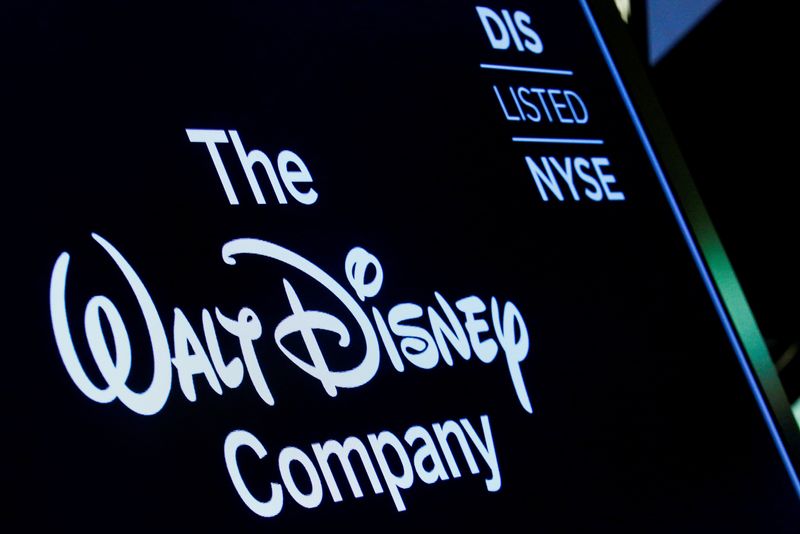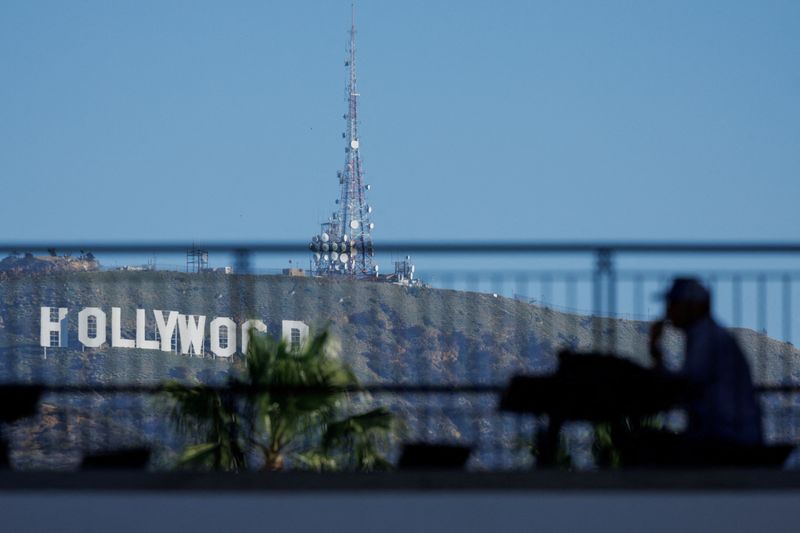By Harshita Mary Varghese, Aditya Soni, and Andrea Shalalai
WASHINGTON (Efwebe) – The entertainment sector responded with a combination of concern and confusion on Monday following President Donald Trump’s statement that he would impose a 100% tariff on all movies made abroad, though he provided scant specifics about the implementation of this proposed tax.
Trump’s Sunday announcement was the latest in his series of levies and threats on various global industries in an effort to boost industrial activity in the United States.
However, his trade strategy, which includes a mix of tariffs, reversals, and probes that might result in increased duties on imports, has diminished both consumer and business faith because of its unclear execution and has kept numerous companies uncertain.
Tariffs on movies might prove more difficult to implement than even the highly integrated North American automobile industry.
The specifics of imposing tariffs on the film sector remain ambiguous. Trump didn’t clarify if these duties would apply to both streaming services and movie theaters, nor did he specify if they’d be calculated according to production expenses or ticket sales figures. Additionally, it wasn’t evident how movies co-produced across multiple nations—like those from the ‘James Bond’ or ‘Mission: Impossible’ franchises—would fare under this potential tariff system; exemptions for them were left uncertain.

On Monday, the president informed journalists that he planned to initially consult with industry representatives to ensure their approval of the concept. Although the White House stated that no definitive choices had been made yet, they acknowledged that movie productions in Hollywood had significantly decreased compared to the prior year.
Given the high level of ambiguity, this recent development has generated more queries than clarifications,” noted PP Foresight’s Paolo Pescatore. “This does not seem likely to occur anytime soon since everybody will be striving to comprehend the entire procedure. Ultimately, these expenses will probably end up being absorbed by customers.
In January, Trump nominated renowned figures from Hollywood—Jon Voight, Sylvester Stallone, and Mel Gibson—to help revitalize the film industry with the aim of making it “bigger, better, and stronger than ever before.” He also expressed his desire for an increase in movie production within the U.S. on Sunday.
The uncertainty sent shares of media companies down across the board on Monday, as it raised fears that such a move would sharply raise costs for Hollywood studios and roil the global entertainment industry.
If enforced, these tariffs might disproportionately affect Netflix since this trailblazer of streaming depends heavily on worldwide productions to create content for its global audience. The company’s stock price fell approximately 1.5% during the afternoon session.
Disney, Warner Bros Discovery, and Comcast, which owns Universal, showed minimal changes after an initial decline. Shares of cinema companies like Cinemark and IMAX decreased by 2.1% and 1.6%, respectively, reducing part of their previous drops. IMAX chose not to comment, with others failing to reply to inquiries for comments.
‘RISK OF RETALIATORY TARIFFS’
Hollywood has been pressing for tax incentives to boost output in Los Angeles, the movie industry’s historic home as the glitzy hub of cinema. Studios over the years have shifted production to locations such as the UK, Canada and Australia to take advantage of generous tax credits and lower labor costs.
Most of this year’s Oscar best picture nominees were filmed outside the U.S., and a survey among studio executives over their preferred production locations for 2025 to 2026 by ProdPro showed that the top five choices were all elsewhere.
Nevertheless, tariffs could add more strain to an industry that is already struggling with declining viewership and increasing expenses following the 2023 Hollywood strikes, which resulted in better wages and expanded benefits for writers and actors. It remains uncertain whether this approach would effectively increase domestic film production.
“Increasing the production costs for movies might cause studios to create fewer films. Additionally, there’s a possibility of reciprocal tariffs being imposed on U.S. content abroad,” stated Barton Crockett, an analyst at Rosenblatt Securities.
Hollywood finds itself targeted by China, which declared intentions to reduce U.S. film imports following recent widespread tariff implementations. However, experts suggest the impact might not be severe since revenue from Chinese cinemas has seen a downturn lately.
Nevertheless, William Reinsch, who previously served as a high-ranking official at the Department of Commerce and is now a senior fellow at the Center for Strategic and International Studies, stated that retaliatory measures against Trump’s movie tariffs would have catastrophic effects.
“The backlash will destroy our sector. The potential losses outweigh the possible gains,” he stated, further noting that it would be challenging to present a compelling argument based on national security or an urgent situation regarding films.
Experts indicated that implementing such measures would be challenging because large media corporations might alter their structures to avoid these obligations. They could generate content via overseas branches or distribute material internationally through licensing agreements.
Trump’s threat sparked concern across the global film industry.
Leaders from Australia and New Zealand, significant settings for both Marvel productions and “The Lord of The Rings,” stated their intent to safeguard their domestic film sectors.
British media union Bectu urged the government to protect the country’s “vital” film sector, warning tens of thousands of freelance jobs were on the line.
Matthew Stillman, CEO of Prague-based Stillking Films, one of the biggest producers of U.S.-financed international content in Central and Eastern Europe, said the tariff threat risked derailing global production pipelines.
“The creation of business and market instability will also have an impact on any medium-term investment strategies as people will be uncertain about what the situation will be in 3 to 5 years,” he said.
(Reporting by Harshita Mary Varghese and Aditya Soni in Bengaluru; Additional reporting by Michael D Kahn in Prague and Muvija M in London; Writing by David Gaffen; Editing by Sriraj Kalluvila and Bill Berkrot)
